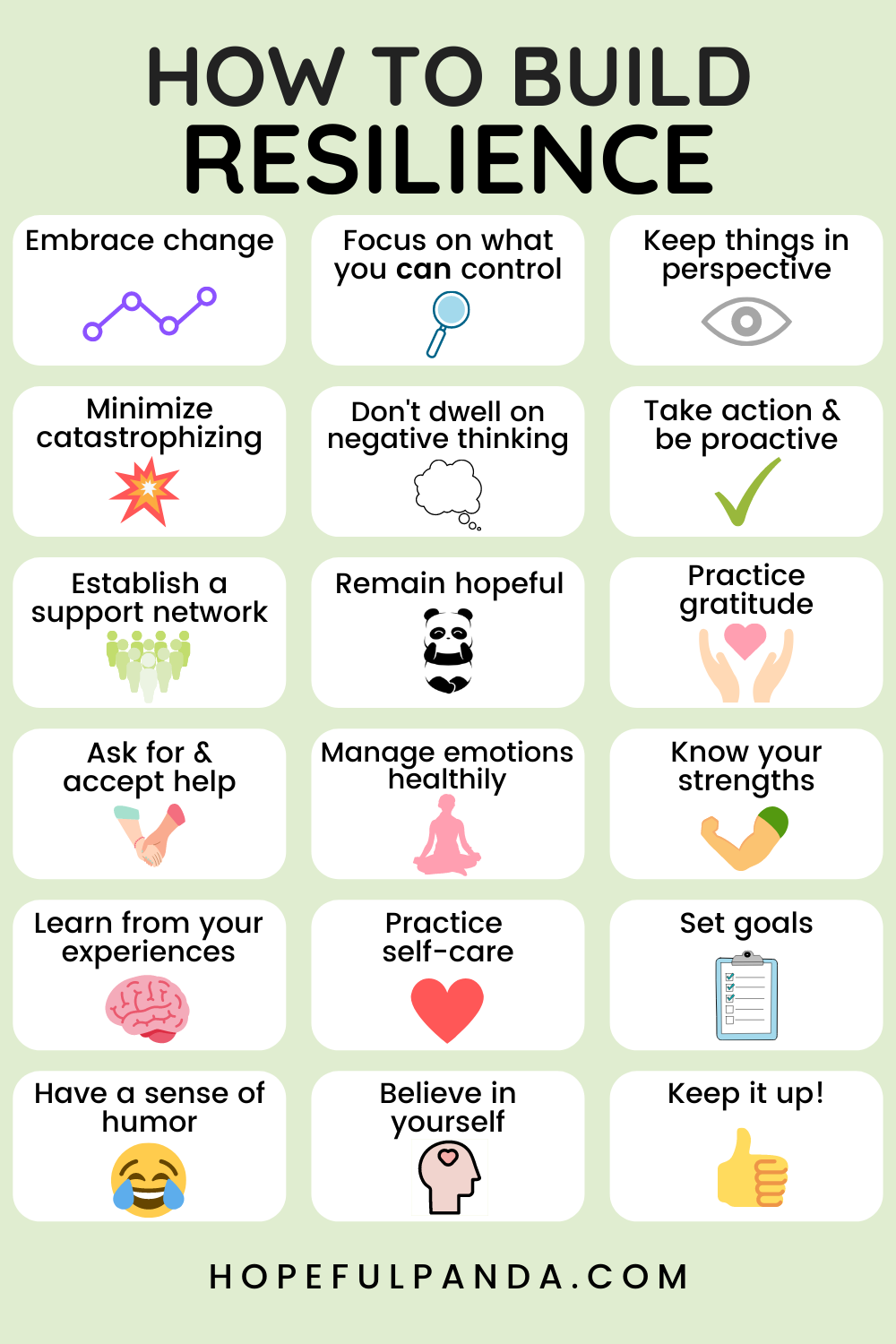Strengthening Mental Resilience: Practical Tips And Techniques

Table of Contents
Identifying and Managing Stressors
Life throws curveballs. Understanding and managing stressors is the first step in strengthening mental resilience. This involves recognizing your personal triggers and developing effective coping mechanisms.
Recognizing Your Stress Triggers
Identifying your stress triggers is crucial. Common stressors include work pressure, relationship problems, financial difficulties, and health concerns. However, your personal triggers might be unique. Self-reflection and journaling can help pinpoint these triggers.
- Examples of common stressors: Deadlines at work, conflict with loved ones, financial instability, health concerns, major life changes (moving, job loss).
- Journaling prompts: What situations make me feel stressed? What are my physical and emotional reactions to stress? What thoughts run through my mind when I'm stressed?
- Mindfulness exercises: Practicing mindfulness can increase your awareness of your thoughts and feelings, helping you identify stress triggers more easily.
Developing Coping Mechanisms
Once you identify your triggers, develop healthy coping mechanisms. Avoid unhealthy coping strategies like excessive alcohol consumption or emotional eating. Instead, focus on techniques that promote relaxation and well-being.
- Deep breathing exercises: Simple breathing exercises can calm your nervous system.
- Progressive muscle relaxation: This technique involves tensing and releasing different muscle groups to relieve physical tension.
- Engaging in hobbies: Pursuing activities you enjoy can provide a much-needed distraction and boost your mood.
- Seeking social support: Talking to trusted friends, family, or a therapist can provide emotional support and perspective.
Time Management and Prioritization
Effective time management is essential for reducing feelings of overwhelm and improving mental well-being. Prioritizing tasks and learning to say "no" are vital skills in stress management.
- Prioritization methods (Eisenhower Matrix): Categorize tasks by urgency and importance to focus on what truly matters.
- Time blocking: Allocate specific time slots for different tasks to enhance productivity and reduce stress.
- Saying "no" to non-essential commitments: Protect your time and energy by declining requests that don't align with your priorities.
Cultivating a Positive Mindset
A positive mindset is a cornerstone of mental resilience. By practicing gratitude, self-compassion, and reframing negative thoughts, you can significantly improve your mental well-being.
Practicing Gratitude
Gratitude fosters positivity and reduces stress. Regularly expressing appreciation for the good things in your life can have a profound impact on your mental state.
- Gratitude journaling: Write down things you're grateful for each day.
- Expressing appreciation to others: Show your gratitude to those around you.
- Focusing on positive aspects of situations: Try to find the silver lining, even in challenging circumstances.
Self-Compassion and Self-Care
Treat yourself with kindness and understanding. Self-compassion is crucial for navigating setbacks and building resilience. Prioritize self-care activities that nourish your mind, body, and soul.
- Positive self-talk: Challenge negative self-criticism and replace it with supportive and encouraging self-statements.
- Forgiving yourself: Everyone makes mistakes. Learn to forgive yourself and move forward.
- Engaging in activities that bring joy and relaxation: Take relaxing baths, go for walks in nature, read a book – whatever brings you peace and happiness.
Reframing Negative Thoughts
Negative thought patterns can significantly impact your mental health. Cognitive restructuring techniques help you challenge and replace these thoughts with more positive and realistic ones.
- Identifying cognitive distortions: Recognize common negative thinking patterns like all-or-nothing thinking or catastrophizing.
- Reframing negative thoughts: Challenge the validity of negative thoughts and replace them with more balanced and realistic perspectives.
- Using affirmations: Repeat positive statements to reinforce a more optimistic outlook.
Building Strong Social Connections
Strong social connections are vital for strengthening mental resilience. Humans are social creatures, and supportive relationships provide a buffer against stress and adversity.
The Importance of Social Support
Supportive relationships offer emotional support, a sense of belonging, and a network of people to rely on during challenging times.
- Benefits of strong relationships: Increased happiness, reduced stress, improved physical health, enhanced coping abilities.
- Actively nurturing connections with family and friends: Make time for meaningful interactions with loved ones.
Seeking Professional Help When Needed
Don't hesitate to seek professional help when needed. Seeking support is a sign of strength, not weakness.
- Types of mental health professionals: Psychologists, psychiatrists, therapists, counselors.
- When to seek help: If you're struggling to manage your stress, experiencing persistent negative emotions, or considering self-harm.
- Resources for finding therapists: Your primary care physician, online directories, insurance providers.
Maintaining a Healthy Lifestyle
Physical and mental health are intricately linked. A healthy lifestyle plays a crucial role in building mental resilience.
The Role of Physical Health
Regular exercise, a balanced diet, sufficient sleep, and limiting substance use are essential for optimal mental well-being.
- Regular exercise: Physical activity releases endorphins, which have mood-boosting effects.
- Healthy diet: Nourish your body with nutrient-rich foods to support brain function.
- Sufficient sleep: Aim for 7-9 hours of quality sleep each night.
- Limiting alcohol and substance use: Excessive substance use can negatively impact mental health.
Mindfulness and Meditation
Mindfulness and meditation practices can help reduce stress, improve focus, and enhance emotional regulation, all contributing to stronger mental resilience.
- Guided meditation apps: Use apps like Headspace or Calm to guide your meditation practice.
- Mindfulness exercises: Practice mindfulness throughout the day by paying attention to your breath, senses, and thoughts without judgment.
- Benefits of regular practice: Reduced stress, improved focus, increased self-awareness, enhanced emotional regulation.
Conclusion
Strengthening mental resilience is an ongoing process that involves identifying and managing stressors, cultivating a positive mindset, building strong social connections, and maintaining a healthy lifestyle. By incorporating the tips and techniques discussed in this article into your daily life, you can build a stronger foundation for navigating challenges and thriving in the face of adversity. Remember that building mental resilience is an ongoing journey, and seeking professional support when needed is a sign of strength, not weakness. Start strengthening your mental resilience today!

Featured Posts
-
 Abn Amro Ziet Occasionverkoop Explosief Stijgen Dankzij Groeiend Autobezit
May 21, 2025
Abn Amro Ziet Occasionverkoop Explosief Stijgen Dankzij Groeiend Autobezit
May 21, 2025 -
 Architektin Bestimmt Endgueltige Bauform Wichtige Ankuendigungen
May 21, 2025
Architektin Bestimmt Endgueltige Bauform Wichtige Ankuendigungen
May 21, 2025 -
 Susan Lucci Splashes Water On Michael Strahan A Hilarious Moment
May 21, 2025
Susan Lucci Splashes Water On Michael Strahan A Hilarious Moment
May 21, 2025 -
 Sasol Sol 2024 Strategy What Investors Need To Know
May 21, 2025
Sasol Sol 2024 Strategy What Investors Need To Know
May 21, 2025 -
 Former Liverpool Managers Impact On Hout Bay Fc
May 21, 2025
Former Liverpool Managers Impact On Hout Bay Fc
May 21, 2025
